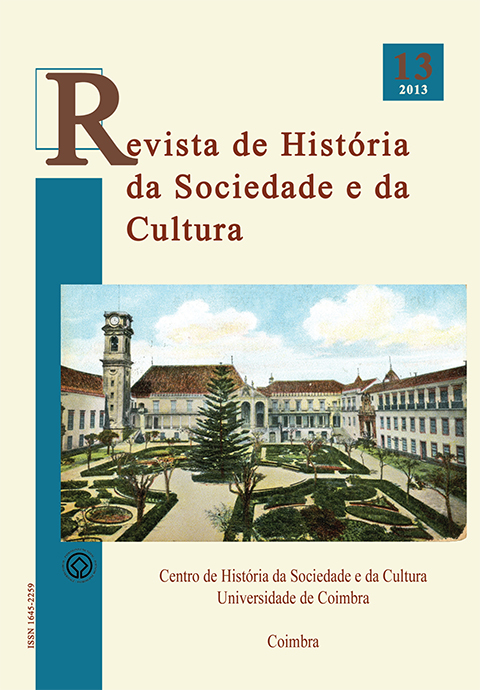Inquisição e Caridade - O caso do tribunal inquisitorial de Lisboa no século XVI
DOI:
https://doi.org/10.14195/1645-2259_13_8Keywords:
Inquisition, Poverty, Charity, Prison, Sixteenth centuryAbstract
In the insignia ofthe Portuguese Inquisition, are confronted the olive tree and the sword, symbols of an antagonistic action that suggests the use of harshness and mercy to those who transgressed against the Catholic faith. However, while the action of the "sword" has taken on a clear role in the history ofthis institution, the knowledge we have regarding the action exerted under the sign of "olive" comes down, essentially, to a speech analysis mainly read in scenic and symbolic dimension. Are ignored, on the other hand, concrete practices of charity that may have contributed to the construction of this representation. The objective of this article is to, through a dialogue between two structures in (re)organization during the sixteenth century, the Inquisition and the institutionalized charity, determine the outlines of the intervention of the Holy Office in the field of welfare, focusing on aspects such as the practices of charity, the poor selection criteria, the perceptions on poverty and the impact this activity has had on the organization of the Inquisition, proposing, finally, a prospective analysis that rescues one of the multiple facets of this institution. The analysis focuses on the inquisitorial court of Lisbon and anchor in a variety of documentary sources.
Downloads
Downloads
Published
Issue
Section
License

This work is licensed under a Creative Commons Attribution 4.0 International License.
Authors retain copyright and grant the journal right of first publication with the work simultaneously licensed under a Creative Commons Attribution License that allows sharing the work with recognition of authorship and initial publication in Antropologia Portuguesa journal.











